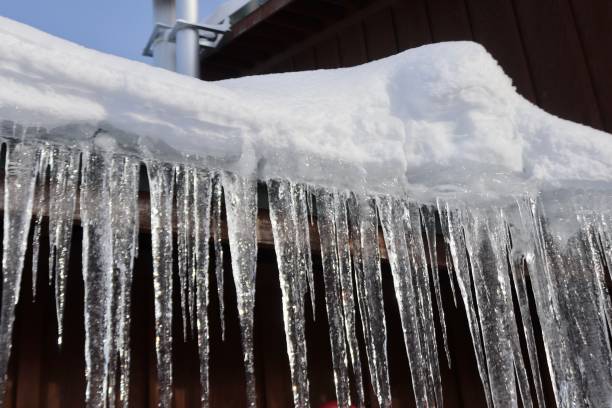Preventing Frozen Plumbing: Best Tips for Winter
Preventing Frozen Plumbing: Best Tips for Winter
Blog Article
Every person seems to have their unique perception with regards to Preventing and dealing with frozen pipes.

Winter can wreak havoc on your plumbing, especially by freezing pipelines. Below's just how to prevent it from happening and what to do if it does.
Introduction
As temperatures decrease, the danger of frozen pipes boosts, potentially resulting in expensive repair services and water damage. Comprehending how to prevent icy pipes is critical for home owners in cold environments.
Avoidance Tips
Protecting at risk pipes
Cover pipelines in insulation sleeves or make use of warmth tape to protect them from freezing temperatures. Focus on pipes in unheated or exterior areas of the home.
Heating techniques
Maintain indoor rooms adequately heated, specifically locations with pipes. Open cabinet doors to allow cozy air to flow around pipelines under sinks.
Exactly how to identify frozen pipes
Search for decreased water circulation from faucets, uncommon odors or sounds from pipes, and noticeable frost on revealed pipelines.
Long-Term Solutions
Structural adjustments
Take into consideration rerouting pipes away from outside walls or unheated locations. Add added insulation to attics, basements, and crawl spaces.
Updating insulation
Buy top quality insulation for pipes, attics, and walls. Proper insulation helps keep regular temperature levels and lowers the threat of frozen pipes.
Safeguarding Outdoor Pipes
Yard hose pipes and outdoor taps
Detach and drain yard pipes before winter. Mount frost-proof spigots or cover exterior taps with insulated caps.
Recognizing Frozen Pipelines
What triggers pipelines to freeze?
Pipelines freeze when revealed to temperatures listed below 32 ° F (0 ° C) for extended periods. As water inside the pipelines freezes, it broadens, putting pressure on the pipe walls and potentially causing them to break.
Threats and problems
Icy pipes can result in supply of water interruptions, residential property damage, and expensive repairs. Ruptured pipes can flood homes and create substantial structural damages.
Indications of Frozen Pipeline
Determining frozen pipes early can stop them from breaking.
What to Do If Your Pipes Freeze
Immediate actions to take
If you presume frozen pipelines, keep faucets open to soothe pressure as the ice melts. Utilize a hairdryer or towels soaked in warm water to thaw pipes slowly.
Verdict
Preventing frozen pipelines requires proactive steps and quick actions. By comprehending the causes, indicators, and preventive measures, homeowners can protect their pipes during winter.
Helpful Tips to Prevent Frozen Pipes this Winter
UNDERSTANDING THE BASICS: WHY PIPES FREEZE AND WHY IT’S A PROBLEM
Water freezing inside pipes is common during the winter months, but understanding why pipes freeze, and the potential problems it can cause is crucial in preventing such incidents. This section will delve into the basics of why pipes freeze and the associated problems that may arise.
THE SCIENCE BEHIND FROZEN PIPES
When water reaches freezing temperatures, it undergoes a physical transformation and solidifies into ice. This expansion of water as it freezes is the primary reason pipes can burst. As the water inside the pipe freezes, it expands, creating immense pressure on the walls. If the pressure becomes too great, the pipe can crack or rupture, leading to leaks and water damage.
FACTORS THAT CONTRIBUTE TO PIPE FREEZING
Low Temperatures: Extremely cold weather, especially below freezing, increases the risk of pipes freezing. Uninsulated or Poorly Insulated Pipes: Pipes located in unheated areas, such as basements, crawl spaces, or attics, are more prone to freezing. Insufficient insulation or lack of insulation altogether exacerbates the problem. Exterior Wall Exposure: Pipes running along exterior walls are susceptible to freezing as they encounter colder temperatures outside. Lack of Heating or Temperature Regulation: Inadequate heating or inconsistent temperature control in your home can contribute to frozen pipes. PROBLEMS CAUSED BY FROZEN PIPES
- Pipe Bursting: As mentioned earlier, the expansion of water as it freezes can cause pipes to burst, resulting in significant water damage.
- Water Damage: When pipes burst, it can lead to flooding and water damage to your property, including walls, ceilings, flooring, and personal belongings.
- Structural Damage: Prolonged exposure to water from burst pipes can compromise the structural integrity of your home, leading to costly repairs.
- Mold and Mildew Growth: Excess moisture from water damage can create a favorable environment for mold and mildew growth, posing health risks to occupants.
- Disrupted Water Supply: Frozen pipes can also result in a complete or partial loss of water supply until the issue is resolved.
WHY CERTAIN PIPES ARE MORE PRONE TO FREEZING
- Location: Pipes located in unheated or poorly insulated areas, such as basements, crawl spaces, attics, or exterior walls, are at higher risk of freezing.
- Exterior Pipes: Outdoor pipes, such as those used for irrigation or exposed plumbing, are particularly vulnerable to freezing as they are directly exposed to the elements.
- Supply Lines: Pipes that carry water from the main water supply into your home, including the main water line, are critical to protect as freezing in these lines can affect your entire plumbing system.
- Underground Pipes: Pipes buried underground, such as those connected to sprinkler systems or outdoor faucets, can be susceptible to freezing if not properly insulated.
https://busybusy.com/blog/helpful-tips-to-prevent-frozen-pipes-this-winter/
:strip_icc()/snow-outdoor-faucet-pipes-4af65d1e5e904fb1aa7bf74071fe5d89.jpg)
I am very curious about 6 Ways to Prevent Frozen Pipes and I really hope you enjoyed reading my post. Enjoyed reading our post? Please share it. Let another person locate it. We take joy in reading our article about 6 Ways to Prevent Frozen Pipes.
Additional Resources Report this page